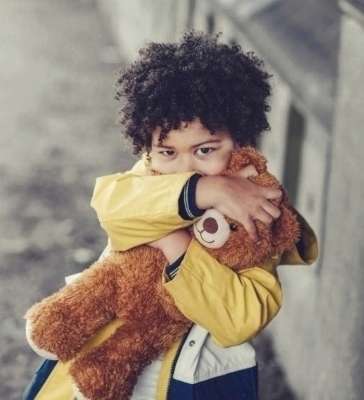It can be challenging when kids won’t share. Sometimes it feels like they’re not being fair, and other times it’s just plain frustrating. But don’t worry, there are plenty of ways to deal with this situation. The important thing is that you shouldn’t force your kid to share. Here are a few tips that might help.
Prepare for a meltdown.

Even though you want everyone to get along, it’s important to be prepared for the possibility of a meltdown. If someone else takes their toy or feels like they’re not getting enough time with you, your child might start crying or screaming. It’s best if you can stay positive and comforting in this situation.
Let them know that it’s okay to express themselves, but help them calm down by suggesting calming activities like taking deep breaths together. Keep your cool so that your son or daughter will follow your lead!
Before you start teaching your kids to share, it’s essential to prepare for a few tantrums. It might help explain the situation and why sharing is necessary for age-appropriate terms. You could say something like: “We need to ask before we play with someone else’s toys. If they want us to stop playing with a toy, we’ll have to stop.”
You don’t want to overwhelm your kids with too many new rules at once – it might end up confusing or frustrating them. So you might start by teaching your kids to ask before taking a toy from someone else. If they’re old enough, you could explain that sharing is an important skill and good friends know how to do it. You might also explain that when people share, everyone gets more time playing with toys (which means more fun).
Teach the magic words.
What are the “magic” words? Generally speaking, it’s best if your kids can say something like “Can I play with ___?” or “May I please play with ___?” This way, children are giving the toy owner a chance to respond. They’re also showing that they understand that not everyone will get their way all of the time – something hard for little kids to accept!
If you have an older kid who knows how to use this kind of polite language, practice it with them ahead of time. You might say things like: “Say ‘May I please play with ___?'” or “What do you think happens when someone asks if they can play with a toy?” If your child has trouble saying these kinds of phrases, you could try writing down some alternative ways for them to ask permission.
Sometimes words aren’t enough, and a child needs more help understanding boundaries. For example, if your child is hitting, pinching, or poking someone else while they’re playing, you might need to step in and help them understand that it’s not okay.
Talk to your kids ahead of time about what sorts of behaviors are out-of-bounds during playtime. This way, you can remind them of the rules when they have difficulty remembering.
Be patient!
Of course, there’s a good chance the first few times someone asks to play with a toy; they won’t get their way. This can be frustrating for your kids – and you! So it might help to ask everyone involved if they can give it another try.
You could say things like, “Can we, please give him two more minutes of playing with that toy?” or “How about if we just finish this game first, then it will be time for you to take the toy back.”
It might also help to explain what will happen once it is time to stop playing with a toy (and who gets dibs next). If your child has trouble waiting their turn, you might need to say something like: “We’ll play with that toy together!” or “I’ll help you pick out another toy to play with.”
Remember, the first few times you teach your kids to share might be difficult. But if everyone stays calm and patient, sharing will become an easy (and fun) activity!
It’s important to remember that learning new skills takes a bit of practice – even for grownups! So give your kids some space to work things out on their own. It never hurts to offer a helping hand from time to time, but try not to jump in every single moment (it will only make things harder). And don’t forget to praise your children when they do try sharing. If you let them know when they’re doing the right thing, they’ll be more likely to keep it up in the future.
Introduce toys one at a time.

It can be challenging for kids to share when they have too many toys out all at once. Make sure there are only one or two toys out at a time – this will make sharing easier.
You could also try asking your kids to pick out one toy they’d like to play with (that way, it will be their turn when they see something they want). Then if other kids want that toy, you could ask them if they have anything else to play with or if someone else has a toy they’d like.
Making sure only one toy is out at a time can help things go more smoothly. If all of the toys are already out, invite everyone to sit down and take turns picking up toys when you notice there’s too much competition for one. You might even say, “It looks like everyone wants this toy right now – let’s put it away until later so we can each play with our own toys”.
Use clear language.
When your kids are starting to get the hang of sharing, you can say lots of things to help make it go smoothly.
For example, when someone takes back a toy, try saying something like, “It’s his turn with that toy.”
You could also remind everyone involved about the rules by saying something like this: “Remember what we talked about – if someone asks for a toy, it’s their turn!” or “Let’s remember our manners and share.”
Saying these kinds of phrases ahead of time will help your kids understand that sharing means being fair and polite. If they know in advance what is expected of them, they’ll be more likely to follow through on their own!
Create a list of all their toys.
If your children have trouble sharing and taking turns, you might want to try creating a toy list.
A toy list is simply a list of all the kids’ toys. Sometimes it’s helpful to write down the name of each toy and who should get it next (in case you can’t figure out whose turn it is). If there isn’t an obvious next person in line, you could add things like “The person closest to this toy” or “Whoever needs it most.”
Having a written list makes sharing easier for everyone involved. It’s also nice because you don’t need to take care of all this while your child is playing with their favorite thing.
Teach kids how to say no politely.
If your kids don’t want to share, they might start by saying no. This is fine – just make sure your children know that it’s okay to say “no.”
Sometimes a simple “I’m sorry, I can’t right now” is enough. Other times it might be better to suggest something else the child could do instead: “Maybe later we can share” or “You can ask for a turn in a few minutes.”
Your kids should understand that it’s okay to tell someone no as long as they’re polite about it.
Tell your kids why sharing is important.

It never hurts to remind your children why sharing is so important. Hopefully, they’ll be more willing to do it once they know what to expect and how sharing makes everyone happy, then hopefully, they’ll be more inclined to do it!
You could say something like this: “Sharing means that we’re all friends – nobody has to fight for the toys with each other, this will be a much happier place” or “When you play together, everything goes better”.
Having some guided conversations about these things ahead of time can make them more memorable (and easier for kids to act on)!
Discuss the consequences of not sharing.
If your kids understand that sharing is the right thing to do, they should also know what happens if they don’t. Kids who share usually get invited to play with other kids – but if someone doesn’t share their toys, maybe no one will want to play with them anymore.
A conversation like this might sound something like this: “Remember how we talked about sharing? Well, sometimes people don’t share because it makes them feel jealous or angry inside. If a kid doesn’t share their toys, other people probably won’t want to play with them anymore.”
You could even go on and say that if everyone shared all the time, then there would be lots of friends around to play together, which would make everyone happy!
If all else fails, take away their favorite toys for a day.
Some kids need a reminder about what’s fair and polite. If that doesn’t work, it might be time to take away the toys for a short period – this is usually enough to teach kids about sharing! It doesn’t have to be forever, but sometimes children think they can control things by not sharing when they can’t. Taking away their favorite toys will help them see that there are consequences to bad behavior and hopefully make them less likely to have these problems again in the future.
Kids who don’t know how to share often become fussy when playing with other kids. They might even refuse to let anyone play with their toys at all. This can make it hard for kids to play and learn with others (which is the point!).
Conclusion.
Do you have other tips for the best way to get kids to share? Tell us about them in the comments section below! And don’t forget to share this blog with other parents who could use some help getting their kids to play nicely together.

Discover the dynamic world through the eyes of Joanna Perez: a celebrated Cognitive Behavioral Therapy Practitioner and an ardent blogger. Not just a writer, Joanna is also an explorer, partner, and a proud mother. Her expertise goes beyond penning thoughts on parenting, health, and lifestyle; she’s also a certified Women Empowerment Life Coach. With training in Life Mastery, Health, Happiness, and Success, she’s equipped to guide you through life’s complexities. Her dedication to education shines as she’s dived deep into the realms of Neuroscience for Parents and completed the Skilled Helper Training Course.
Reviewed By: Anna West and Brenda Tillman
Edited By: Lenny Terra
Fact Checked By: Marcella Raskin
Photos Taken or Curated By: Matthew Mansour